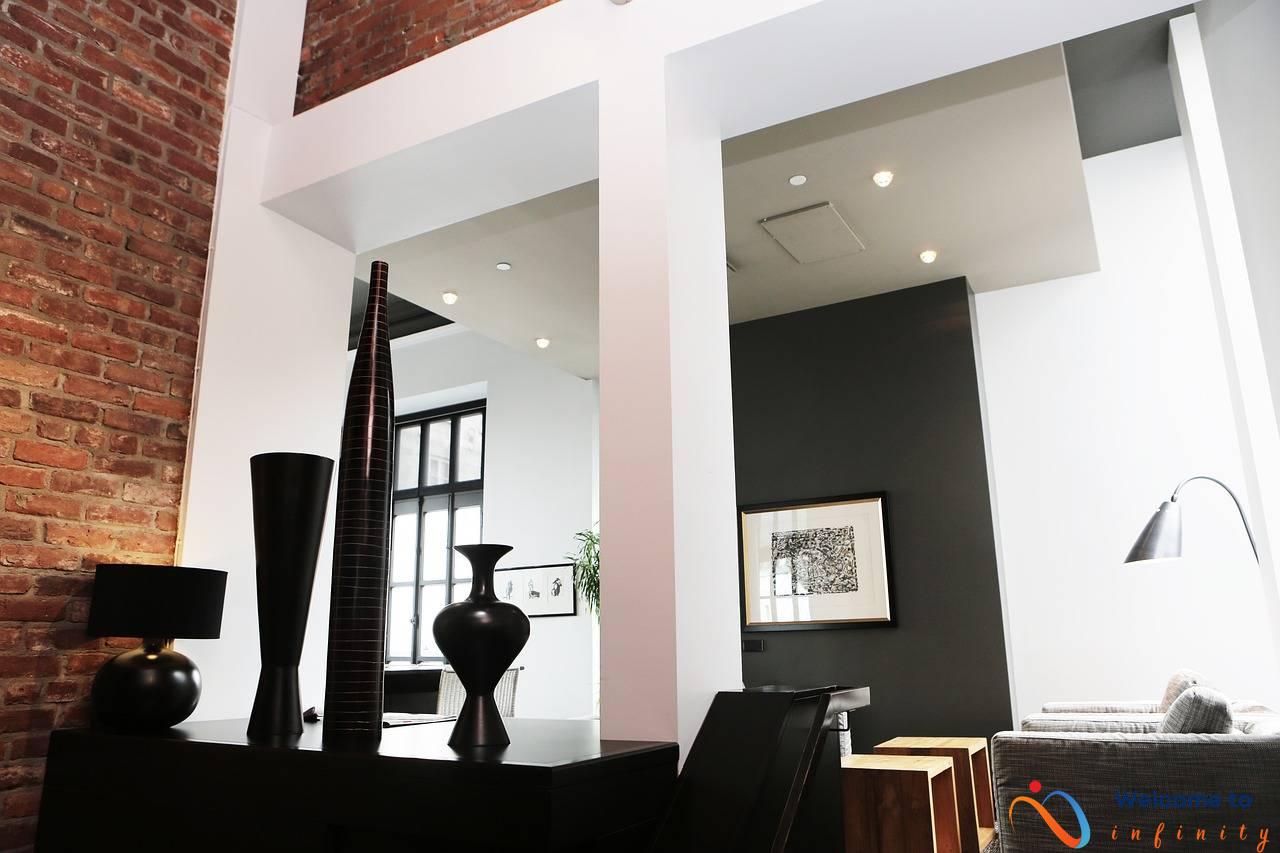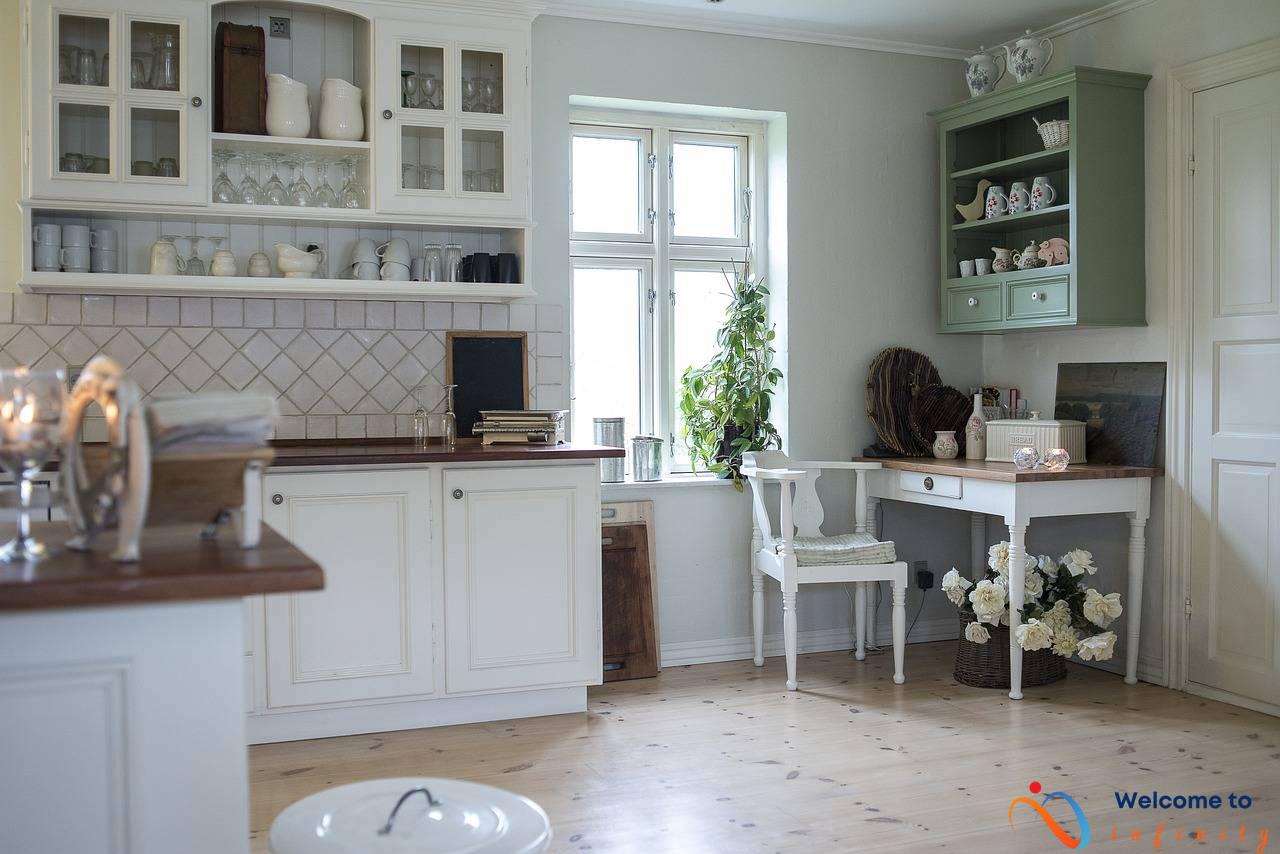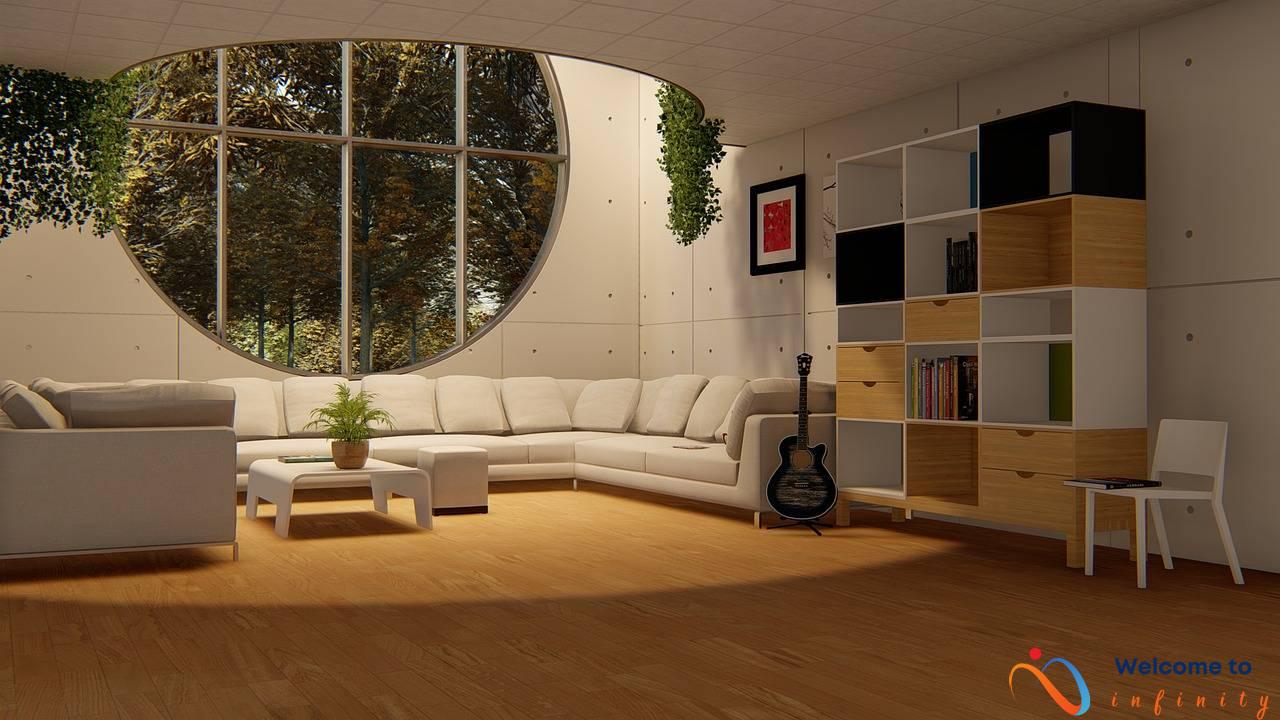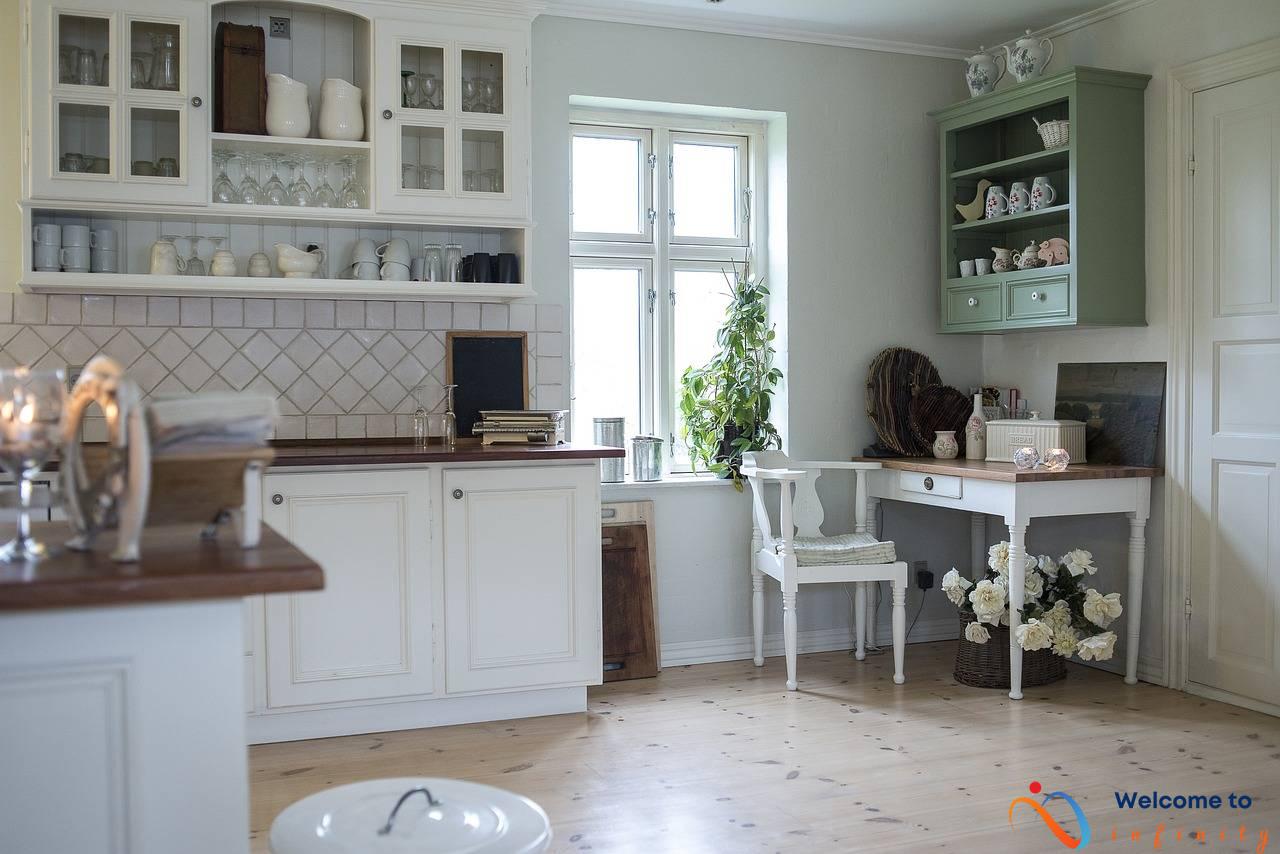When it comes to kitchen countertops, many people may not realize that there are eco-friendly options available that also provide a range of benefits. By choosing sustainable materials for your countertops, you can reduce your environmental impact while also enjoying improved indoor air quality, reduced waste, and increased home value. In this article, we will explore some of the top eco-friendly options for kitchen countertops and outline their unique benefits and potential drawbacks.
One popular option for sustainable countertops is bamboo. Bamboo is a renewable resource that grows quickly and can be harvested in as little as 3-5 years, making it a more sustainable alternative to traditional hardwoods. Additionally, bamboo is naturally antimicrobial and can be sealed for added durability. Recycled glass countertops are another eco-friendly option that are made from recycled glass and resin. Not only are they environmentally friendly, but they also offer a wide range of colors and styles, and each one is unique.
Butcher block countertops are another renewable material option that provides a warm, rustic look to any kitchen. These countertops are made from wood and can be treated with natural oils to prevent stains and water damage. Concrete countertops are also a popular choice for their durability and ability to be shaped and molded to fit any kitchen design. These countertops can also be mixed with recycled materials to make them a more eco-friendly option.
Before making a decision about which eco-friendly countertop material to choose, it's important to weigh the potential pros and cons. For example, some materials may require more maintenance or be more expensive than others. However, by doing your research and making an informed decision, you can find an eco-friendly countertop option that fits your style, budget, and sustainability goals.
Bamboo Countertops
If you're looking for a sustainable alternative to traditional hardwoods for your kitchen countertop, bamboo may just be the material for you. Since bamboo is a renewable resource, it can be harvested in as little as 3-5 years, making it an eco-friendly option for your home. Not only is it sustainable, but bamboo is also naturally antimicrobial, meaning it resists the growth of bacteria and other microorganisms. This makes it a great choice for kitchen countertops where hygiene is a top priority.
Bamboo can be sealed for added durability, which helps to prevent warping and cracking over time. It's important to note that while bamboo is durable, it is still prone to scratches and dents, so care should be taken to protect the surface. Overall, bamboo countertops are an excellent choice for those looking for an eco-friendly and stylish option for their kitchen.
Recycled Glass Countertops
Looking for an eco-friendly alternative to traditional countertops? Consider recycled glass countertops. Not only are they sustainable, but they are also beautiful and durable. Made from recycled glass and resin, each countertop is unique and comes in a variety of colors and styles.
Not sure if recycled glass countertops are right for you? Here are some pros and cons to consider:
| Pros | Cons |
|---|---|
| – Environmentally friendly | – Can be expensive |
| – Unique appearance | – Can be prone to scratching |
| – Durable | – Potential for chipping |
Despite these potential drawbacks, many homeowners find that recycled glass countertops are an attractive and sustainable choice. They add a unique touch to any kitchen and can even increase the value of your home.
If you do choose recycled glass countertops, proper maintenance is crucial to keeping them looking their best. Avoid using abrasive cleaners or harsh chemicals, which can damage the surface. Instead, use a gentle, non-abrasive cleaner and wipe up spills promptly to prevent staining.
Overall, recycled glass countertops are a great choice for environmentally conscious homeowners who want a durable and stylish countertop option.
Pros and Cons of Recycled Glass Countertops
Recycled glass countertops are a popular eco-friendly option for kitchen countertops, but as with any material, there are pros and cons to consider before making a decision. Below are some factors to keep in mind:
- Eco-friendly: Made from recycled glass, these countertops help reduce waste in landfills and provide a more sustainable option.
- Durable: Recycled glass countertops are strong and can withstand daily wear and tear in the kitchen.
- Unique: Each recycled glass countertop is unique because of the varying colors, patterns, and textures of the glass used.
- Easy to clean: These countertops are non-porous, which means they are resistant to stains and bacteria and can be easily wiped clean.
- Cost: Recycled glass countertops can be more expensive than other eco-friendly options, such as bamboo or concrete.
- Maintenance: These countertops require regular sealing to prevent any scratches or chipping from occurring.
- Not heat resistant: Recycled glass countertops can be damaged by hot cookware, so it's important to use trivets or hot pads when placing items on the surface.
- Potential durability issues: If not properly sealed or installed, these countertops may be prone to cracking or chipping.
Before deciding on recycled glass countertops, it's important to carefully consider these pros and cons and weigh them against your personal preferences and needs. If cost is a concern, you may want to explore other eco-friendly options. However, if you're drawn to the unique look of recycled glass countertops and are willing to put in the extra maintenance, they could be the perfect addition to your eco-friendly kitchen.
Butcher Block Countertops
Butcher block countertops are an excellent choice for those who prefer a warm, rustic look in their kitchen. Made from a renewable resource – wood – they can be a sustainable option. However, it's essential to ensure that the wood used is certified by a reputable forest stewardship council. This certification guarantees that the wood is sourced sustainably and ethically.
One of the benefits of butcher block countertops is their durability. They are resistant to scratches and can last a long time, provided they are taken care of. Proper care includes treating the wood with natural oils, which prevent water damage and stains. However, it's essential to avoid using harsh chemicals that can damage the wood's surface and leave marks. In addition, unlike other countertop materials, scratches and marks on butcher block countertops can be sanded out, making them look brand new again.
Butcher block countertops come in a variety of wood types, each with a unique look and feel. Some popular options include maple, oak, and cherry. Each type has distinct patterns and colors, which can be a perfect complement to any kitchen design.
Another advantage of butcher block countertops is their affordability. They are less expensive than materials like granite or quartz, making them a budget-friendly option for those looking for a sustainable countertop alternative. They are also easy to install and can be customized to fit any kitchen design.
Overall, butcher block countertops are an appealing and eco-friendly option for those who want to bring warmth and character to their kitchen. With proper care and maintenance, they can last a lifetime, providing a functional and sustainable addition to any home.
Concrete Countertops
Concrete is a great option for those seeking durability and sustainability in their kitchen countertops. It is a long-lasting material that is particularly well-suited for busy kitchens since it can withstand heat and scratches better than many other options. Concrete is also receptive to customization. It can be mixed with recycled materials to make it more eco-friendly and shaped and molded to fit any kitchen design.
One thing to keep in mind when choosing concrete countertops is that they can also be prone to cracking and staining. Proper maintenance is crucial to keeping your countertops looking good for as long as possible. Concrete countertops need to be regularly sealed to prevent staining and damage from water. Luckily, sealing is a quick and straightforward process that can be done with simple equipment, such as a roller or sprayer.
Concrete countertops made with recycled materials are particularly eco-friendly as they help reduce waste and preserve natural resources. By repurposing materials that would have otherwise ended up in a landfill, homeowners can contribute to a greener environment. Plus, since each concrete countertop is custom made, it is always one-of-a-kind.
In conclusion, concrete countertops can provide a great combination of sustainability and durability when it comes to eco-friendly kitchen countertops. By taking proper care to maintain them and using recycled materials, you can have high-quality and unique countertops that add value to your home and contribute to a greener environment.
Maintaining Concrete Countertops
Concrete countertops are a popular choice amongst eco-friendly homeowners due to their durability and versatility. However, they do require proper maintenance to ensure they stay looking their best for years to come.
One of the most common issues with concrete countertops is cracking. To prevent cracking, it's important to avoid placing heavy objects on the countertops and to avoid excessive heat exposure. It's also recommended to seal the countertops regularly to help prevent moisture from seeping in and causing damage.
Staining is also a common concern with concrete countertops. To prevent staining, it's important to wipe up spills immediately and avoid using abrasive cleaning products that can damage the surface. Additionally, using cutting boards and trivets can help protect the countertops from scratches and heat damage.
Regular cleaning is also crucial to maintaining concrete countertops. To clean the surface, simply use warm water and mild soap. Avoid using harsh chemicals or abrasive scrubbers that can damage the surface.
Overall, proper maintenance is crucial to keeping your concrete countertops looking their best. By following these simple tips, you can ensure that your countertops remain durable, beautiful, and eco-friendly for years to come.
Benefits of Eco-Friendly Kitchen Countertops
Eco-friendly kitchen countertops provide several benefits apart from being good for the environment. Choosing sustainable materials for your kitchen countertop can help improve indoor air quality, reduce waste, and increase your home's value.
Many traditional countertop materials are known to emit harmful gases and chemicals into the air. Eco-friendly materials are non-toxic and do not release harmful fumes into the air, making them an ideal choice for families with children and pets. By choosing eco-friendly kitchen countertops, you can improve indoor air quality and reduce the risk of respiratory issues.
Eco-friendly countertops are made from recycled or renewable materials, which helps reduce the amount of waste that ends up in landfills. By choosing a sustainable material for your kitchen countertop, you can contribute to a healthier planet and reduce your carbon footprint. Moreover, eco-friendly countertop options like recycled glass countertops and bamboo countertops are becoming increasingly popular and accessible, making it easier for homeowners to make the switch.
Installing eco-friendly kitchen countertops can increase your home's value and appeal to potential buyers. Increasingly, homebuyers are looking for sustainable features and eco-friendly options in the properties they purchase. By installing a sustainable countertop in your kitchen, you can add value to your home that will attract potential buyers.
By choosing eco-friendly kitchen countertops, you can make a positive impact on the environment and reap the benefits of improved indoor air quality, reduced waste, and increased home value.
Improved Indoor Air Quality
Eco-friendly kitchen countertops, made from sustainable materials, offer several benefits, including improved indoor air quality. Traditional countertop materials, such as granite and laminate, can release harmful gases and chemicals into the air, which can cause respiratory issues in some people. These harmful substances are known as volatile organic compounds (VOCs) which are commonly found in paint, cleaning chemicals, and other household products. Some VOCs can cause cancer, while others can cause eye, nose, and throat irritation.
By choosing eco-friendly kitchen countertops, you can reduce your exposure to these harmful chemicals and improve indoor air quality. Materials such as bamboo, recycled glass, and concrete are natural materials that do not release any harmful chemicals or gases into the air. These materials not only look stunning but also provide a healthier living environment for you and your family.
In addition to that, eco-friendly materials are usually non-porous, which means they are less likely to harbor bacteria and other microorganisms that can cause illness. They are easy to clean and maintain, which not only reduces the amount of time and money spent on maintenance but also helps to keep your family healthy.
To further improve indoor air quality in your home, it is recommended to use natural cleaning products that are free of chemicals. Chemical-based cleaners can also release VOCs into the air, which can affect the air quality in your home. Switching to natural and eco-friendly cleaning products together with eco-friendly countertops is a step towards creating a healthier home environment.
Therefore, choosing eco-friendly kitchen countertops is not only good for the environment but also for your health. It is an excellent way to reduce your exposure to harmful chemicals and gases while improving the overall air quality in your home. By making this sustainable choice for your kitchen, you will be benefiting yourself, your family, and the environment in the long run.
Reduced Waste
Eco-friendly countertops not only benefit the environment by reducing carbon footprint, but they also help reduce the amount of waste that ends up in landfills. Countertops made from recycled or renewable materials can be recycled again or decompose in the landfills without causing much damage.
Recycled glass countertops, for example, are made from crushed glass and binders, preventing the glass from ending up in landfills. Similarly, bamboo is a renewable resource that can grow back in a few years, providing an excellent material for countertops. Other materials such as concrete, stainless steel, and engineered stone can also be manufactured from recycled materials, significantly reducing waste.
In addition, eco-friendly countertop materials are often manufactured in environmentally-friendly ways. For example, bamboo grows quickly and requires little water, fertilizers, and pesticides compared to other hardwoods. Recycled glass countertops are melted and molded into different shapes and sizes with little energy and resources. These manufacturing processes emit a smaller amount of greenhouse gases and have a lower impact on the environment.
By choosing eco-friendly countertops, homeowners can do their part to reduce the amount of waste and environmental damage caused by traditional countertop materials. It is essential to choose a sustainable material with minimal environmental impact. Consider factors such as durability, maintenance, and cost before making a final decision on the best material for your kitchen countertop.
Increased Home Value
When considering a home renovation, many homeowners are looking for ways to not only improve the functionality and aesthetics of their space but also add value to their property. The installation of eco-friendly kitchen countertops can do just that!
As sustainability and environmental consciousness become increasingly important to homebuyers, the demand for eco-friendly features is also on the rise. Sustainable countertops, made from materials such as bamboo, recycled glass, or concrete mixed with recycled materials, can increase the appeal of your home and attract potential buyers.
According to studies, homeowners who invested in sustainable upgrades, such as energy-efficient appliances and eco-friendly flooring, saw a return on investment of up to 70%. This means that not only are you creating a healthier, more eco-friendly living space but also potentially increasing the resale value of your home.
Another benefit of installing eco-friendly countertops is the savings on future maintenance and repair costs. Sustainable materials tend to be more durable and long-lasting, meaning that they won't need to be replaced as frequently as traditional countertop materials. This can be appealing to potential buyers who are looking for a low-maintenance home.
Finally, having eco-friendly kitchen countertops can also help reduce your carbon footprint and contribute to a more sustainable future. By choosing materials that have been responsibly sourced or recycled, you are helping to reduce waste and promote sustainable practices.
In conclusion, sustainable and eco-friendly kitchen countertops not only offer numerous benefits for the environment but also can increase the value and appeal of your home. By investing in sustainable upgrades, you are making a positive impact now and in the future.
Conclusion
When it comes to eco-friendly kitchen countertops, there are multiple options to choose from, including bamboo, recycled glass, butcher block, and concrete. Each material has its own unique benefits and drawbacks that should be considered when making a final decision.
For example, bamboo is a sustainable alternative to traditional hardwoods, but may require sealing for added durability. Recycled glass countertops are not only environmentally friendly but also beautiful, although they may come with higher costs and potential durability issues. Butcher block countertops provide a warm, rustic look and are treated with natural oils to prevent water damage and stains. Concrete countertops are durable and long-lasting and can be mixed with recycled materials to make them more eco-friendly, but may require proper maintenance to prevent cracking and staining.
Ultimately, by doing thorough research and weighing the options, homeowners can make an informed decision about which sustainable material is right for their homes. In addition to being environmentally friendly, eco-friendly kitchen countertops also offer improved indoor air quality, reduced waste, and increased home value for potential buyers. By choosing sustainable materials, homeowners can not only help the environment but also enjoy the benefits of a beautiful and eco-friendly kitchen for years to come.











